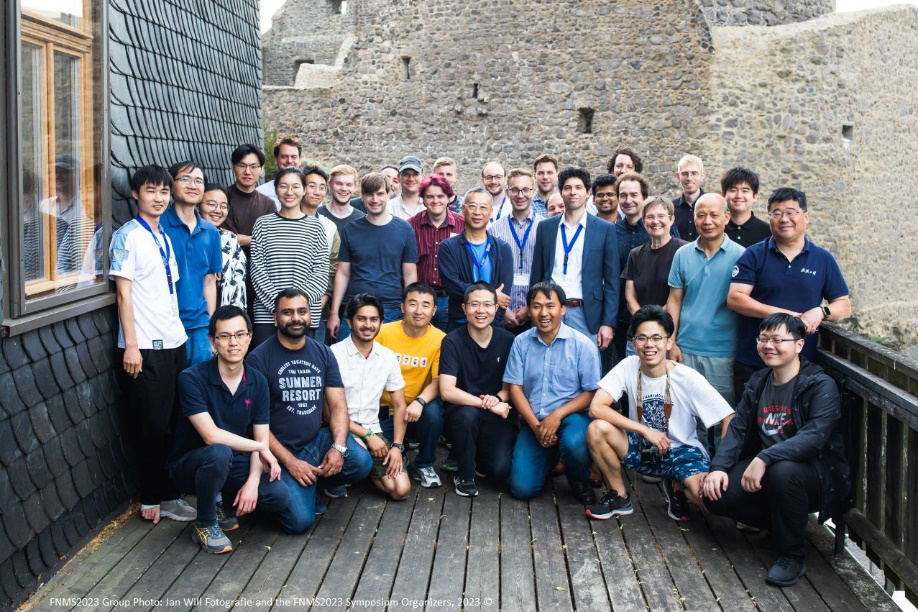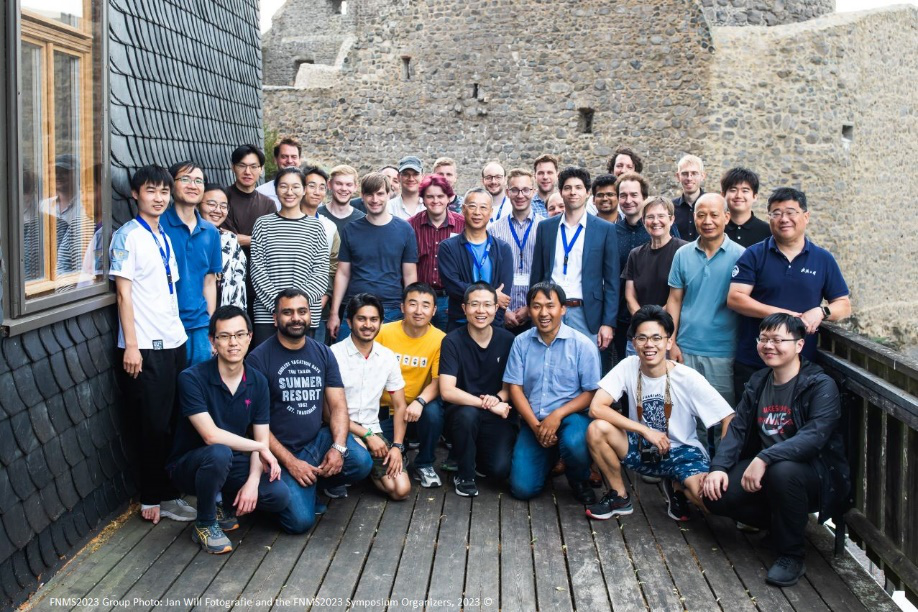12/03/2024
After many years of waiting, and by outlasting the recent global pandemic with scientific online activities, participants from China and Germany excitingly flocked to meet in Giessen for this year’s “FNMS2023” Symposium. After the previous conference which was successfully held in China, the organizers of the 2nd Sino-German Symposium on Functional Nano-Materials Sciences proudly look back on another memorable and interactive in-person Symposium 2023. Carried out in Giessen at the Justus-Liebig-University (JLU), the event brought together dozens of young researchers and senior experts from related subjects, with 52 abstracts submitted for 33 invited talks and 18 poster presentations.
“Supported by the framework of our Sino-German Cooperation Group, the Symposium program enabled many fruitful discussions between attendees and revived interactions among cooperation partners thanks to the off-line meeting,” the Co-Chairs Prof. Dr. Huizhen Wu and PD Dr. Arash Rahimi-Iman recall, who are hosted by the Zhejiang University in Hangzhou and the JLU in Giessen, respectively. Moreover, they conclude that the event also gave a boost to their ongoing joint research activities: “Many researchers and colleagues could see each other in person, acquaint themselves with new research and people, and exchange views on a number of topics of mutual interest”.
From fabrication and engineering to characterization and devices, the Symposium presentations addressed many aspects of modern nanomaterials research, including studies on a variety of quantum structures and quantum materials as well as their possible utilization. These can be the nowadays very prominent colloidal quantum dots that promise for instance brighter, more color-intense displays, or the class of two-dimensional layered materials with unique optical and electronic properties when thinned down to the sub-nanometer thickness scale. On the applications side of novel materials and nanostructures, energy harvesting, light generation, quantum photonics and optoelectronic sensors received considerable attention.
The organizing team was particularly happy to welcome students from the speakers’ groups from both Germany and China and to let them take part jointly in the FNMS2023 Symposium, being immersed in a week full of science talks peaked by a cultural excursion in the central region of Germany in order to render it a magnificent event for a broad range of attendees.
The two Co-Chairs further explain: “Nonetheless, during the past years of travel constraints, the members of our FNMS Cooperation Group could bridge the far distances owing to the virtual meetings, even though many scientific interactions had been impeded for a while globally”. They are encouraged to once more unite the interested scholars as well as rising talents from both countries in the near future to advance collaborations and friendships – next round hopefully again in China.
PHOTO (FNMS group at castle, culture/social day, JPG file) 19-07-2023:

© Jan Will Fotografie and the FNMS2023 Symposium Organizers, 2023

